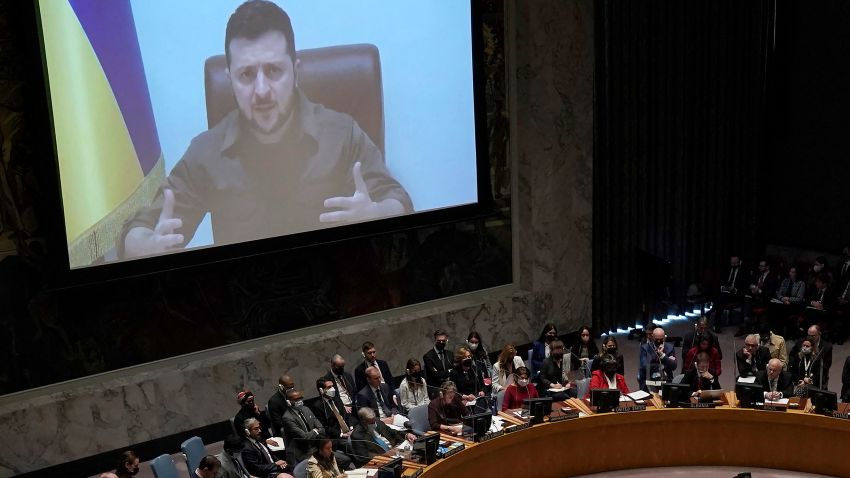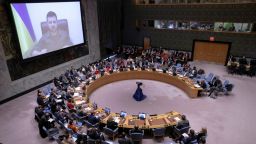Editor’s Note: This story was excerpted from the April 6 edition of CNN’s Meanwhile in America, the daily email about US politics for global readers. Click here to read past editions and subscribe.
Russia was furious about blatant violations and contravention of norms and rules. But Moscow’s UN ambassador, Vasily Nebenzya, was not fixated on sickening atrocities blamed on Russian troops in Ukraine. Instead, he was fuming about supposed infringements of protocol on calling meetings.
This bizarre mini-circus at the beginning of a searing Security Council session on Tuesday only served to prove Ukrainian President Volodymyr Zelensky’s subsequent point: What is the point of the UN if it can’t act against crimes against humanity and punish the perpetrators?
The Ukraine crisis is far from the first time that the UN’s impotence – baked into its institutions by the veto-wielding power of its five permanent Security Council members and its need to often seek consensus on the most controversial issues – has failed to act to prevent atrocities.
But the onslaught in Ukraine is really exposing the limits of this post-World War II institution. Russia, as a permanent member of the Security Council, can effectively veto investigations into its own alleged crimes.
Zelensky proposed a conference to discuss reform of the United Nations and the Security Council – an oft-mooted idea that never goes anywhere. He argued that there was no point in a Security Council if it couldn’t promote security for UN member states. He also called for a Nuremberg-style trial to bring Russian war criminals to justice.
“Please show how we can reform or change and work for peace,” Zelensky told Security Council members in his latest powerful video address.
“If there is no alternative and no option, then the next option would be to dissolve yourself altogether. And I know you can admit that if there is nothing that you can do besides conversation.”
Some US lawmakers have called for Russia to be expelled from the Security Council. Yet even if the UN General Assembly were to cast a required two-thirds vote to do so, Moscow could use its veto to block its own removal. And even if it didn’t, China would likely back Moscow up.
Critics of the United States and the West often complain they also manipulate the Security Council for their own ends. In 2003, for example, the Bush administration attempted, but failed, to obtain a second council resolution authorizing military action in Iraq, fueling the claims of opponents that the subsequent war was illegal.
In the past, the Security Council has created international tribunals and investigations into war crimes in places like Rwanda and the former Yugoslavia. But there’s no chance Moscow would vote to put itself on trial, meaning that if Russian President Vladimir Putin and his generals face justice, it won’t come through the UN.
The applause that rang through the Security Council chamber for Zelensky’s speech must have sounded rather hollow from Kyiv.



